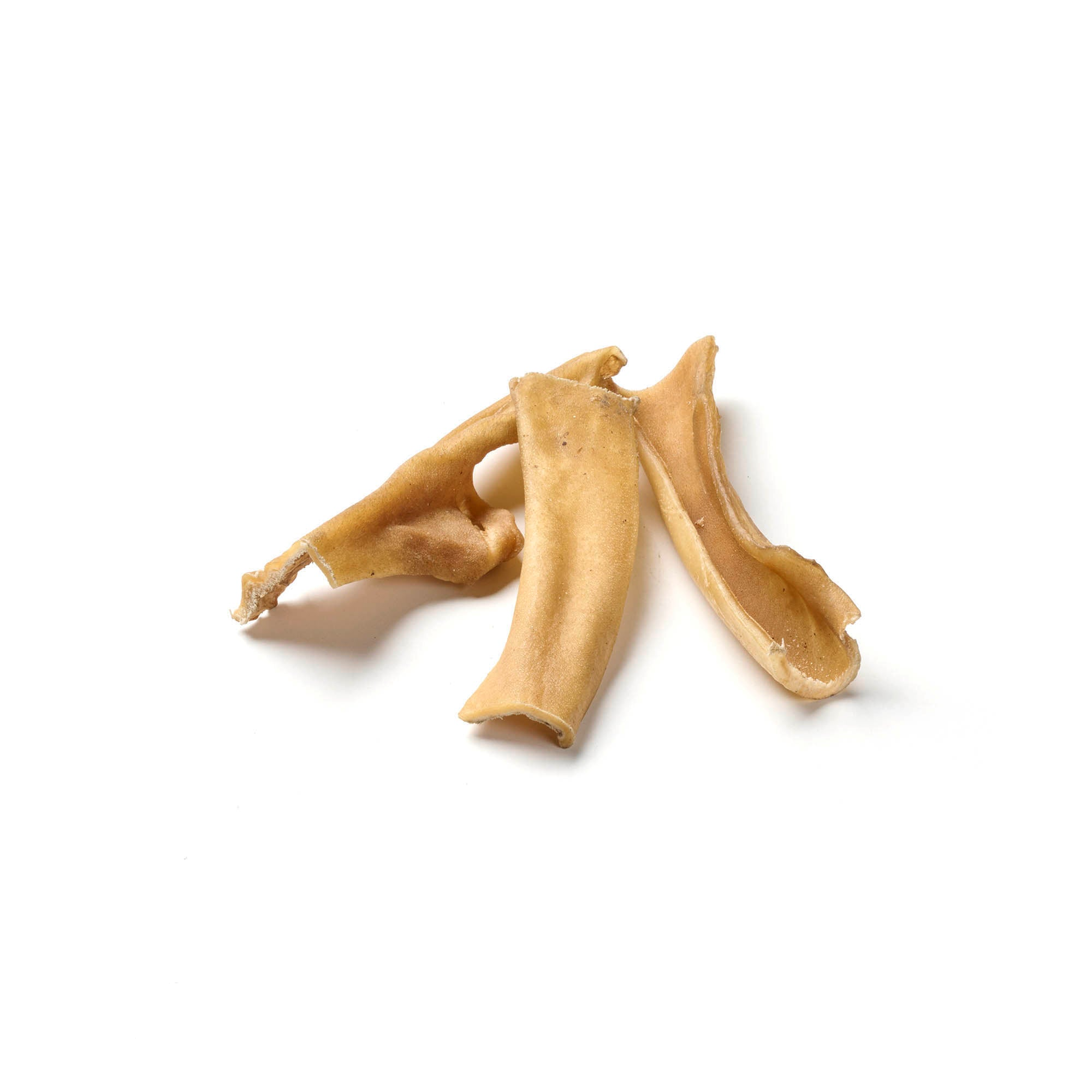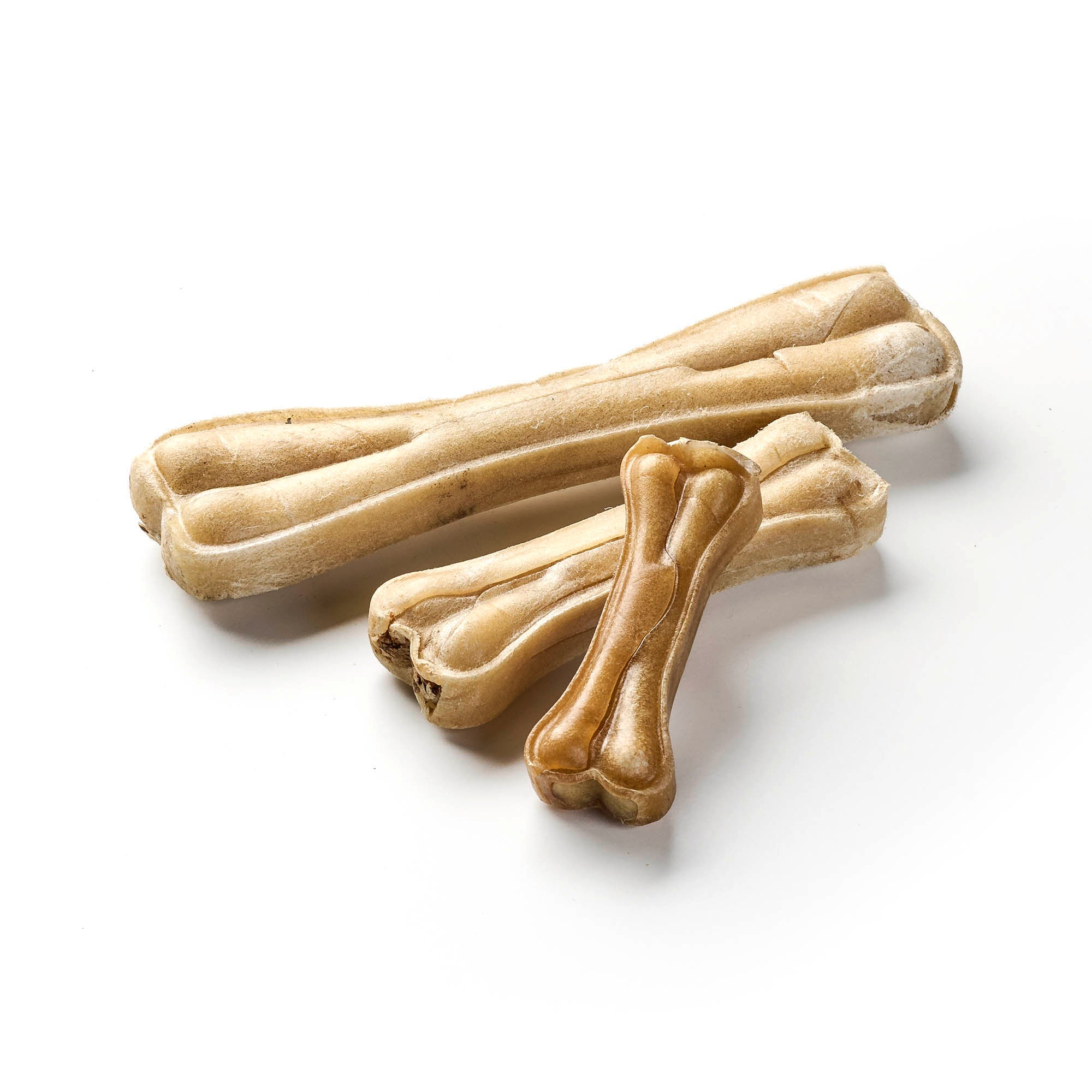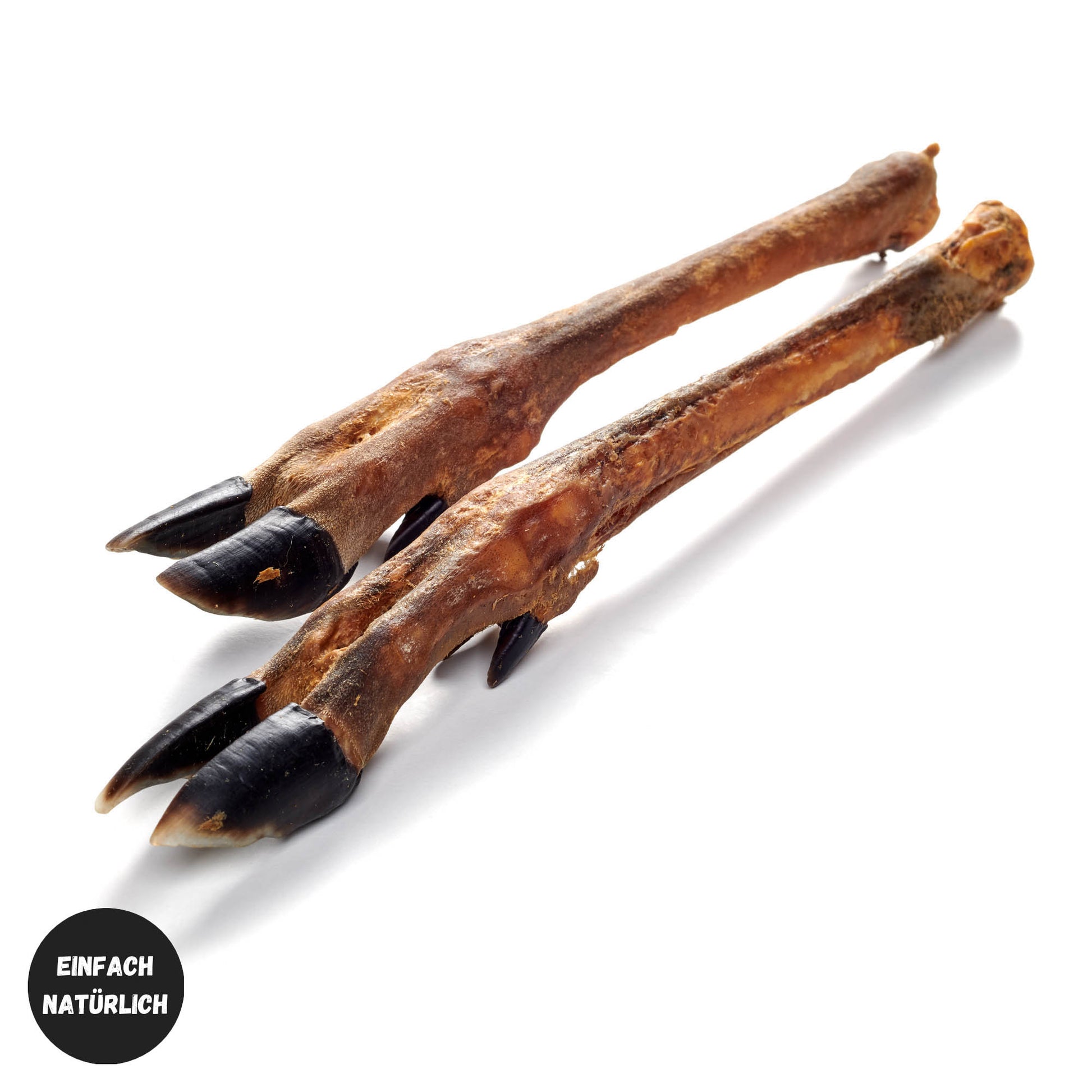
How much does a dog cost? - We'll tell you
Share
When choosing a pet, your own budget is often a deciding factor in what kind of animal you get. Dogs are certainly one of the cheapest animal companions compared to horses or other exotic species. They are cheaper to keep than cats, which is quite surprising. But of course you can also spend a fortune on dogs. To give you a better overview, we'll tell you what you should know about the costs of a dog.
If you don't have a dog yet but want nothing more than a loyal four-legged friend, you can be overwhelmed by the dog market. Many questions arise: Where is the best place to buy a dog? What is a fair price? What do I need to consider and do I need to register my dog? There are many other questions that need to be answered, but let's take one thing at a time!
Content: How much does a dog cost
- What you should consider when buying a dog
- Checklist before buying a dog
- This is what the 10 most popular dogs in Germany cost
- How much does a dog from the animal shelter cost?
- Basic equipment
- How much does a dog cost per month?
- Dog tax
- How high is the dog tax in the ten largest cities in Germany?
- How to pay your dog tax
- When does the dog tax no longer apply?
- Which dogs are exempt from dog tax?
- Dog health insurance
- Dog liability insurance
- How much does dog liability insurance cost?
- What does dog liability insurance pay?
- Dog Food
- How much does dog food cost?
- Conclusion
Discover the range of dog snacks in our store!
What you should consider when buying a dog
In addition to calculating the cost of buying a dog, it is just as important to prepare yourself mentally for the upcoming event. This includes asking yourself some serious questions to find out whether or not you are ready to get a dog.
Are you physically fit enough to meet your dog's need for exercise or can you even find the time required to keep the dog properly? This means that when buying a dog, it's not just the financial aspects that play a role, but the way the dog will be integrated into your daily life must be carefully considered.
This is not just a hobby, but a living creature that requires careful care. If you have never bought a dog before, there are several things you need to consider. Firstly, you need to include the cost of buying the dog in your planning, and secondly, you need to get a thorough overview of the recurring costs.
In addition, you also have to prepare for certain eventualities. These include injuries and illnesses and the costs that arise from them, such as the cost of the vet or special dog food . To help you with this, we have created an overview of the things that you need to consider before buying a dog and include in your planning in order to be as well prepared as possible.
Checklist before buying a dog
You may have been thinking about buying a dog for a while and have probably already imagined a few scenarios that could arise. Our dog checklist will give you some further food for thought that may be relevant to you:
- Can I devote enough time?
- Am I physically fit enough?
- Do I have the necessary experience?
- Can I afford the costs?
- Do I have room for a dog?
- Is a dog allowed in the house/apartment?
- How do I react to dirt/damage caused by the dog?
- Where can I leave my dog while on vacation?
- Do I have acquaintances/friends who can help out in an emergency?
These questions provide a good starting point for you to consider whether you are ready to become a dog owner. As you can see, there are many aspects that you should think through carefully before buying a dog so that you do not rush into this venture.
A variety of challenging scenarios can arise that are difficult to prepare for. Therefore, long before you buy a dog, you should try to answer the above questions as honestly and thoroughly as possible.
Since it is often difficult to meet all of the criteria, you should definitely take enough time to consider these preliminary considerations. The family should also be involved in this decision, as owning a dog means a big change for all family members.
This is what the 10 most popular dogs in Germany cost
Depending on the breed, the cost of owning a dog varies greatly. Here are some examples of the costs that can be incurred for the 10 most popular dog breeds in Germany:
-
German Shepherd : The purchase price for a purebred German Shepherd can be between 800 and 1,500 euros. The monthly costs for food, veterinary care and accessories can be around 100 to 150 euros.
-
Labrador Retriever : A Labrador puppy can cost between 800 and 1,200 euros. The monthly care costs are around 100 to 150 euros.
-
Chihuahua : Buying a Chihuahua can cost between 800 and 2,000 euros. Monthly costs vary depending on the size of the dog, but they are usually between 50 and 100 euros.
-
Dachshund : A dachshund puppy can cost between 800 and 1,500 euros. The monthly costs for care and food are about 50 to 100 euros.
-
Golden Retriever : The purchase price for a Golden Retriever can be between 1,000 and 1,500 euros. The monthly costs are around 100 to 150 euros.
-
Yorkshire Terrier : Buying a Yorkshire Terrier can cost between 800 and 1,500 euros. The monthly care costs are around 50 to 100 euros.
-
Boxer : A boxer puppy can cost between 800 and 1,500 euros. The monthly costs for care and food are about 100 to 150 euros.
-
French Bulldog : Buying a French Bulldog can cost between 1,000 and 2,500 euros. Monthly costs vary, but they are usually between 50 and 100 euros.
-
Siberian Husky : The purchase price for a Siberian Husky can be between 800 and 1,500 euros. The monthly costs are around 100 to 150 euros.
-
Poodle : A poodle puppy can cost between 1,000 and 2,000 euros. The monthly costs for care and food are about 100 to 150 euros.
Reward your best friend with our dog treats!
It is important to note that these are only rough estimates and actual costs may vary depending on the dog's breed , health condition and individual needs. In addition to the costs listed above, veterinary costs, vaccinations , insurance and possibly dog training must also be taken into account.
How much does a dog from the animal shelter cost?
The cost of adopting a dog from a shelter is usually significantly lower than buying a puppy from a breeder. However, the exact cost can vary depending on the shelter. In Germany, adoption fees are usually between 100 and 300 euros. This fee often covers vaccinations, deworming , and spaying or neutering the dog.
The benefit of adopting from a shelter is that the dog has already received some medical care and is often already spayed or neutered. Plus, you're helping a dog in need find a new home. However, it's important to note that even with an adopted dog, there will still be monthly costs for food, vet visits, and other expenses.
Basic equipment
The initial dog kit includes a variety of necessary items that you will need to welcome your new dog and ensure his well-being. Here is a list of the basic things you will need for your dog:
- Dog basket or dog bed: 20 to 100 euros
- Collar and leash: 10 to 50 euros
- Feeding bowls: 10 to 30 euros
- Food: Costs vary depending on brand and quality, about 20 to 60 euros per month.
- Toys: 10 to 30 euros
- Brush and care products: 10 to 30 euros
- Transport box or bag: 20 to 100 euros
- Dog flaps (if required): 20 to 100 euros
- Scratching post (if you have a cat): 20 to 100 euros
These prices are only rough estimates and can vary depending on the brand and quality of the products. So the initial equipment can cost between 100 and 400 euros or even more, depending on your personal preferences and the needs of your dog.
How much does a dog cost per month?
The monthly cost of caring for a dog can vary greatly depending on several factors such as the breed, size of the dog, age and individual needs. Here are some of the most common monthly costs to consider:
-
Food : The cost of dog food can vary depending on the brand and quality. It is usually between 20 and 60 euros per month.
-
Vet visits : Regular vet visits for vaccinations, worming and health checks can cost between 20 and 50 euros per month. Including unexpected vet costs such as treatments for illness or injury, this can vary.
-
Dog tax : The amount of dog tax varies depending on where you live and the breed of your dog. In larger cities, the annual dog tax can be between 100 and 200 euros or more.
-
Dog liability insurance : The monthly costs for dog liability insurance are usually between 5 and 15 euros.
-
Accessories and toys : Depending on how much you spend on toys, care products and accessories, the monthly cost may vary. An estimate of 10 to 30 euros per month is reasonable.
Overall, the monthly cost of caring for a dog can range from $50 to $200 or more. It's important to create a budget for these expenses and make sure you are financially able to meet your dog's needs.
Dog tax
In Germany, dog tax is a local tax levied by municipalities. The amount of dog tax can vary from municipality to municipality and often depends on the breed and number of dogs kept. Dog tax is usually levied annually and must be paid by the dog's owner.
How high is the dog tax in the ten largest cities in Germany?
Dog tax varies in the ten largest cities in Germany. Here is a rough overview of the dog tax rates in these cities:
| City | First dog | Second dog | Third dog |
|---|---|---|---|
| Berlin | 120-180 euros | 240-360 euros | 360-540 euros |
| Hamburg | 90-180 euros | 180-360 euros | 270-540 euros |
| Munich | 100-200 euros | 200-400 euros | 300-600 euros |
| Cologne | 120-204 euros | 240-408 euros | 360-612 euros |
| Frankfurt am Main | 90-180 euros | 180-360 euros | 270-540 euros |
| Stuttgart | 90-120 euros | 180-240 euros | 270-360 euros |
| Dusseldorf | 120-240 euros | 240-480 euros | 360-720 euros |
| Dortmund | 90-180 euros | 180-360 euros | 270-540 euros |
| Eat | 72-120 euros | 144-240 euros | 216-360 euros |
| Leipzig | 84-120 euros | 168-240 euros | 252-360 euros |
Discover the selection of dog snacks in our shop!
Please note that these are only rough estimates and actual dog tax rates may vary depending on your city and municipality. It is advisable to check with your local administration for exact dog tax rates and conditions.
How to pay your dog tax
Dog tax is usually collected once a year by the local tax administration or the relevant tax office. The exact payment terms may vary from city to city, so it is important to check with your local administration about payment deadlines and methods.
When does the dog tax no longer apply?
In certain cases, dog tax may be waived or reduced. These often include:
- Guide dogs or assistance dogs for people with disabilities
- Police or rescue dogs
- Farmers’ dogs used exclusively to guard livestock
- Dogs working as non-profit rescue dogs or in disaster relief
- Dogs used for scientific or research purposes
However, the exact rules and conditions may vary depending on the municipality. It is advisable to check with your local administration about exemption from dog tax if any of these cases apply to you.
In summary, dog tax is a local tax that can vary from municipality to municipality. The exact costs and conditions for dog tax vary depending on where you live and whether you own a dog. It is therefore important to check with your local administration about the exact dog tax rates and payment methods.
Conclusion
The costs of keeping a dog in Germany can vary depending on the breed, size and individual needs of the dog. In addition to the purchase costs, monthly care costs and dog tax, you should also consider additional expenses such as veterinary costs, insurance and accessories.
Before you decide to get a dog, it is important to make sure that you are financially able to take on the responsibility of having one. The love and care you can give a dog are crucial to their well-being and health, so the decision to adopt or buy a dog should be well thought out and based on a solid financial foundation.
It is also advisable to check the local regulations and laws regarding dog ownership in your community to ensure that you meet all the necessary requirements and do not run into any legal problems.
Ultimately, the joy and happiness a dog brings to your life can be worth the financial outlay. However, if you are unsure whether you can afford a dog, it is advisable to do some thorough financial planning before getting one and make sure you are ready to take on the responsibility of a new family member.
High quality dog snacks to pamper your dog, now available!
















